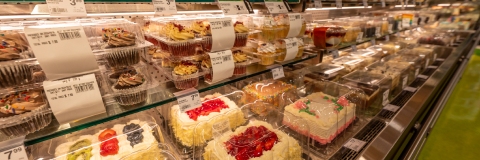Making it easier to live plastic waste-free
As a Canadian leader in plastics reduction, we are committed to ongoing partnerships with suppliers, manufacturers, processors and composters to find alternative forms of packaging that are better for people and the planet.
Our Approach
We are leaders in plastic waste reduction and circularity in our industry.
Our overarching strategic approach to plastics and packaging is aligned with the Government of Canada’s Action Plan on Zero Plastic Waste. We support the federal government’s mandate to reduce plastic waste and improve reuse and value recovery and maintain our commitment to eliminate banned plastic items. These actions are critical to reducing plastics released into our environment and to increasing circular processes that encourage the reuse and recycling of materials.
In the last year there has been significant activity at all levels of government to eliminate unnecessary or difficult-to-recycle plastics and packaging materials and items. This continues to be a priority and focus of our collaboration with stakeholders across the food industry. We are committed to eliminating plastic and packaging waste in our Own Brands and in our operations, to pursuing circularity as a key business differentiator and to inspiring technological, organizational and social innovation across our value chain.
Advancing our Plastics Action Plan
In fiscal 2024, we continued to make progress on a multi-year Plastics Action Plan focused on the following areas:
We are making progress in each of these three key action areas of our Plastics Action Plan. Our focus is on reducing unnecessary and difficult-to-recycle single-use plastics within our Own Brands and operations, increasing the use of post-consumer recycled (PCR) plastic material in our packaging, leading on circularity in our stores and e-commerce, and engaging with customers to reduce plastic waste at home.
Working With Partners and Suppliers
As a member of the Retail Council of Canada, we participate in industry committees related to plastics and packaging, including the EPR Stewardship Committee and the Plastic Committee. We have a consulting relationship with the Circular Innovation Council, and we participate in numerous industry working groups where we regularly connect on best practices for packaging circularity in the retail industry. We also continue building strategic collaborative partnerships with our supplier partners to address plastics and packaging across all product categories.
In addition to reducing use of hard-to-recycle plastics, our teams are finding ways to make other kinds of packaging less wasteful, too. For example, following a successful procurement process, our pharmacy teams are working with a new supplier to source a 100%-recycled paper bag solution that is also distributed in ways to reduce transportation emissions. In addition, our team is working with generic vendors to develop larger pack sizes and reduce the amount of plastic used in stock bottles.
As another example, we have supported an industry-wide shift on mushroom packaging, moving away from non-recyclable plastic containers to clear, recyclable polyethylene (PET). This shift makes mushroom packaging 85% more recyclable. Select partners have been able to introduce recycled content (rPET) into these trays, reducing plastic use and fostering circularity.
Building on a Comprehensive Review
In fiscal 2024, we initiated a comprehensive analysis of our food packaging across our Own Brands and store supplies divisions. With the collaboration of our supplier partners, we are examining current and future opportunities to enhance packaging sustainability. This initiative will enable us to establish strategic objectives to increase packaging circularity; ensure compliance with governmental regulations, including Extended Producer Responsibility (EPR) requirements; and drive innovation.
We are collecting packaging data, such as weight, dimensions and recycled material usage, from our Own Brands and store supplies suppliers. This data supports our efforts to identify ways to reduce problematic and unnecessary plastic in our Own Brands packaging and store-packaged goods. Our next phase involves expanding and refining our approach to enhance transparency and establish sustainability goals for our packaging.

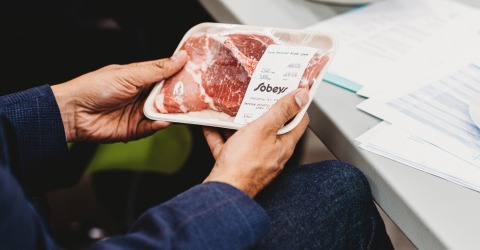
Highlights
Canada’s First Reuse Pilot-An Industry-Wide Collaboration
In 2023, we joined the Circular Innovation Council, a leading national non-profit organization focused on accelerating Canada’s transition to a circular economy. In collaboration with other national grocery retailers, we are piloting a first-of-its-kind reuse program aimed at eliminating single-use plastics and introducing reusable food containers into grocery retail. This is the largest collaborative reuse initiative in the country, starting with the development of a unique reusable food container pilot for launch in Ottawa in 2024. Learning from this pilot, we will explore ways to scale future programs towards even greater plastics reduction.
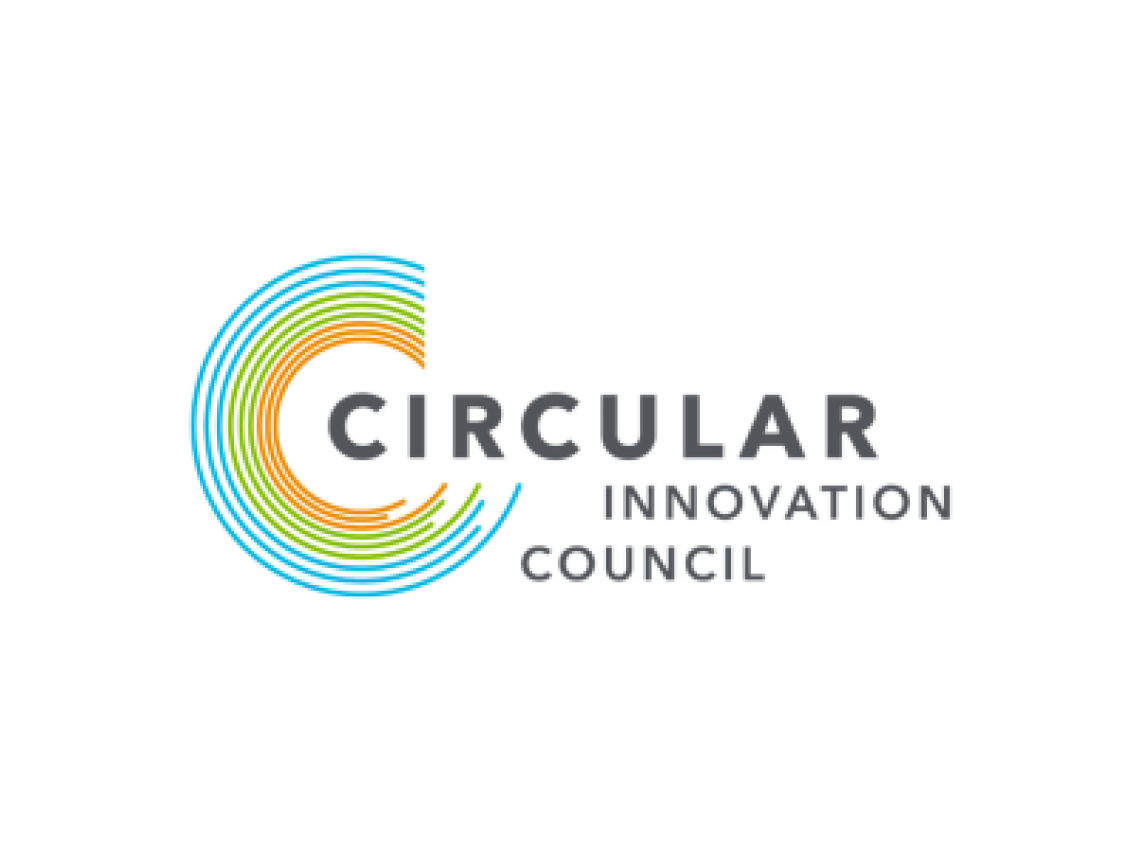
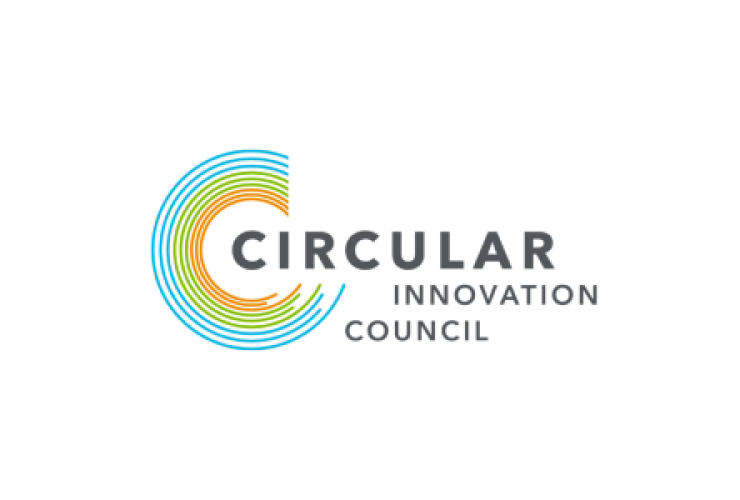
Renewing Our Circular Packaging Working Group
Our Plastic Action Committee continues to inform, champion and drive action to reduce and eliminate plastic and packaging while looking for opportunities to bring reusable packaging options to our products. Led by our sustainability team, the committee meets quarterly and includes participants from key stakeholder departments organized into functional groups, each focused on reducing plastic and packaging in various aspects of our business.
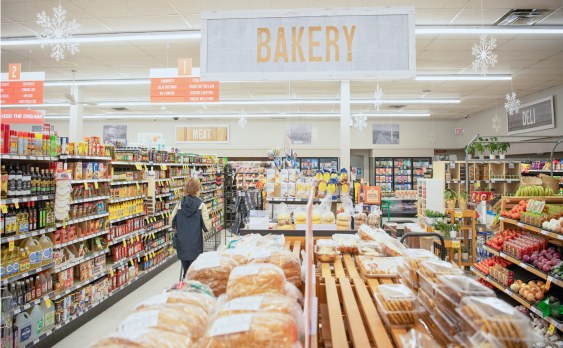
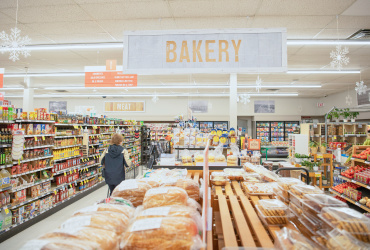
Ongoing Collaboration With Plastic Waste Challenge Winner
We continue to collaborate with Eco Guardian, the winner of our national Plastic Waste Challenge, in its design and prototype testing of compostable meat trays to replace plastics and extruded polystyrene. We are learning important lessons about how to ensure sustainable packaging is ready for customers and contributing to a circular economy.
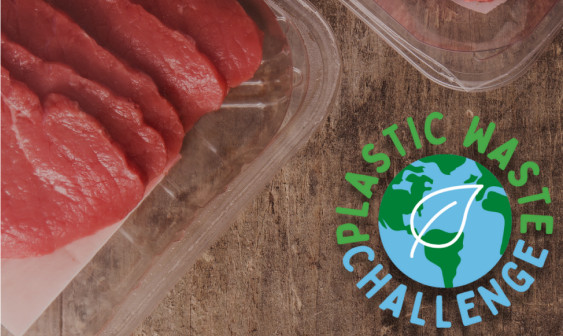
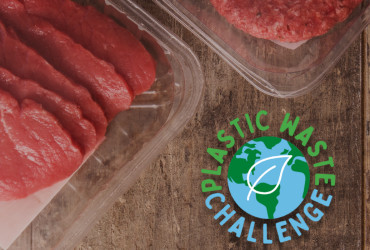
Introducing Packaging Guidelines for Sobeys
We’ve introduced a new roadmap to help internal sourcing teams make more sustainable packaging decisions. While always keeping food safety front of mind, the roadmap draws on industry best practices, including the Golden Design Rules and the Canada Plastic Pact to inform purchasing decisions that reduce the use of hard-to-recycle plastics.
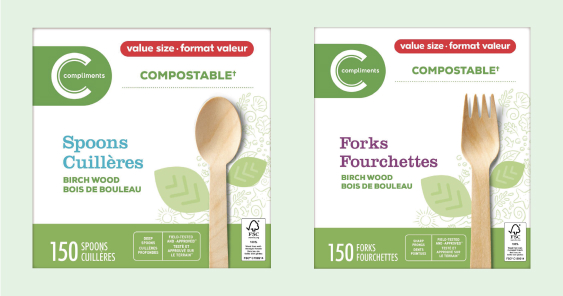

Improving Recyclability in Own Brands Packaging
Our Own Brands team continues to target action on difficult-to-recycle plastics. This year we transitioned to PET packaging in several product categories, such as mushrooms and fresh chicken, and eliminated 200 tonnes of polystyrene destined for landfill.
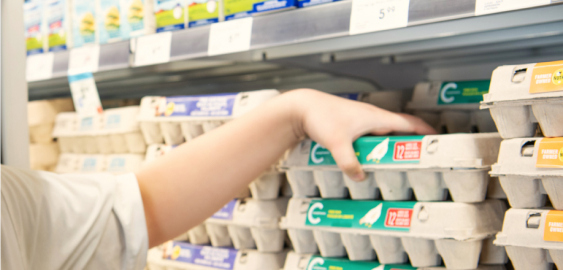
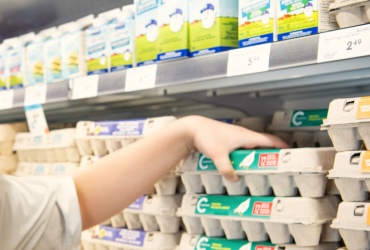
Expanding Bulk Windshield Washer Fluid Availability
We continue to install bulk windshield washer fluid stations in Quebec. Eight locations were installed by EcoTank in 2023, and six more were added in 2024. We aim to continue this scale-up into fiscal 2025, based on the success of this initiative to date. Since fiscal 2022, we have displaced nearly 20,000 3.75-litre plastic jugs.
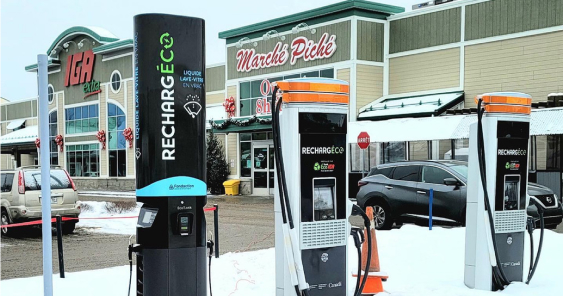
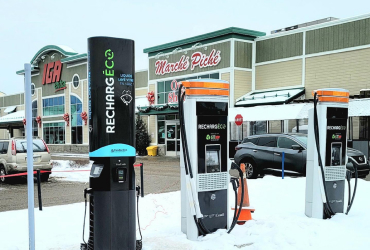
Champions
By transitioning away from problematic plastics to easier-to-recycle packaging, we aim to reduce the waste that winds up in landfills while making our business more efficient. In the last year, we transitioned our made-in-house products away from black plastic packaging to white or clear without any cost increases. That’s a win for the environment and a win for us.”
Brian Partridge, Manager, Packaging & Sustainability, Farm Boy

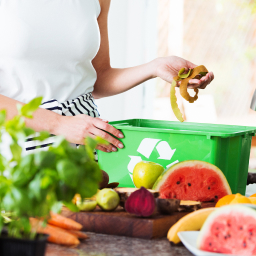
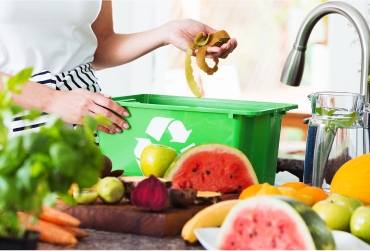
Learn More
Our work to reduce plastics is strongly aligned with and connected to our focus on ethical and sustainable sourcing and efforts to reduce food waste.
As a family nurturing families, we want to ensure Canadians are taken care of today, tomorrow and in the future. By doing OurPartR for the environment, we hope to inspire our customers to do theirs. Every step we take together—big or small—can make a difference.
Learn More
